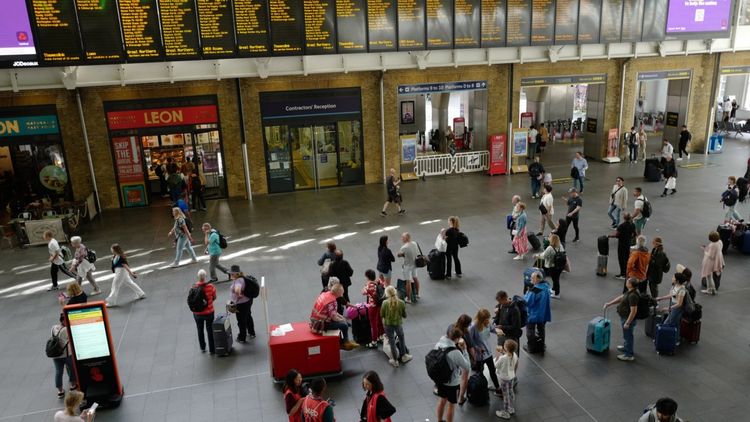Are there train strikes in August 2023? Full list of RMT rail strike dates and how trains are affected

The RMT union has declared the addition of two fresh days for strike action as part of its ongoing disagreement with railway companies regarding salary, job safeguarding, and working circumstances.
Employees represented by the RMT union also held three strikes during the month of July, whereas train operators represented by Aslef have been declining to work any extra hours in a distinct disagreement.
When Will The RMT Strikes Occur?
Railway employees belonging to the RMT union will engage in a strike action on the upcoming Saturdays of August 26 and September 2.
Over 20,000 employees are poised to go on strike across 14 railway companies, resulting in a significant halt in train services.
According to Mick Lynch, the general secretary of RMT, the sentiment among our members continues to be strong and resolute in our nationwide disagreement regarding wages, job stability, and working circumstances.
We have deemed it necessary to initiate additional strike measures since the Rail Delivery Group (RDG) has not presented us with any enhanced or modified proposal.
The cause behind this is that the Government has not granted them a new authorization on which deliberations can take place.
"Our constituents and our labor organization will persevere in the struggle until we can achieve a mutually agreed upon and equitable resolution."
Aslef's Overtime Ban: When Is It?
Train operators who are members of Aslef union and are employed by 15 different train operating companies will once again decline additional work hours starting from Monday, August 7th until Saturday, August 12th.
According to Aslef, they had no choice but to pursue this course of action because they are still advocating for improved wages for their members in the face of the pressing issue of rising living expenses.
The operators mentioned below have expressed that they anticipate not being able to operate their complete schedule (click on the provided links to access the latest information from each operator):
The companies mentioned below anticipate being able to operate their complete schedule, but there is a possibility of last-minute cancellations.
The subsequent companies won't face any impact and are expected to operate regularly: c2c, Caledonian Sleeper, Grand Central, Elizabeth Line, Heathrow Express, Hull Trains, London Overground, Lumo, Merseyrail, ScotRail, Transport for Wales.
According to Aslef, the prohibition - part of our ongoing nationwide salary disagreement - will heavily impact transportation services since none of the train companies have adequate sufficient drivers to fulfill the commitments they made to both passengers and the government.
This is why they rely on rest day working, also known as voluntary work in the railway sector. This practice is agreed upon and carried out for the purpose of training, but unfortunately, it exposes them to the risk of facing such industrial actions.
RDG's Statement: Insights & Updates
The RDG, which stands for the rail companies, expressed that the financial structure of the railway underwent an alteration: "The traditional franchise approach is no longer in effect, and train operators are now remunerated based on a modest fixed fee tied to their performance."
"They generate a profit margin, usually around 0.5 percent, just like any other suppliers working for the Government. Even if that charge were completely eradicated, it wouldn't be enough to cover the proposed salary increase, as it would cost nearly twice as much as the profit margin for just one year."
Even prior to the outbreak of the pandemic, franchisees only held onto a mere 2 pence out of every pound accumulated from ticket sales.
According to the RDG's announcement, the railway industry has incurred a loss of £620 million due to strikes initiated by the RMT since June 2022.









































